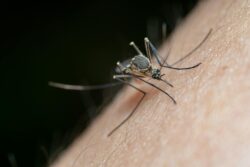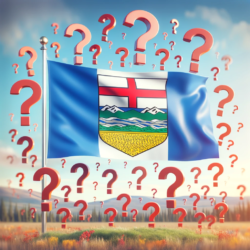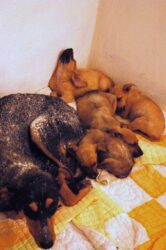Yes, Alberta is home to fleas despite its harsh winters. These resilient pests can survive extreme temperatures and go for long periods without food. Their presence underscores the need for
Category: Alberta Health

What Medical Information Can an Employer Request in Alberta?What Medical Information Can an Employer Request in Alberta?
In Alberta, employers can request medical information from employees for specific purposes related to employment, such as confirming an absence due to medical reasons, determining fitness to return to work,

When Does Mosquito Season Start in Alberta?When Does Mosquito Season Start in Alberta?
Alberta experiences a dynamic mosquito season, influenced by various factors including weather conditions, geographical differences, and mosquito species diversity. When Does Mosquito Season Start in Alberta? Mosquito activity in Alberta

When Is Tick Season in Alberta?When Is Tick Season in Alberta?
Tick season in Alberta, a critical period for outdoor enthusiasts, pet owners, and professionals working outdoors, demands heightened awareness and preventive measures to mitigate the risks associated with tick bites.

Where to Retire in AlbertaWhere to Retire in Alberta
Alberta, with its diverse landscapes and high quality of life, offers numerous attractive destinations for retirees. From bustling cities with vibrant cultural scenes to tranquil towns nestled in the Rockies,

Who Can Give Botox Injections in Alberta?Who Can Give Botox Injections in Alberta?
Botox injections have become a popular cosmetic treatment for reducing wrinkles and enhancing facial aesthetics. In Alberta, the administration of Botox is regulated to ensure safety and efficacy. This article

Applying for Maternity Leave in AlbertaApplying for Maternity Leave in Alberta
Navigating the process of applying for maternity leave in Alberta requires understanding the eligibility criteria, application steps, and rights both during and after the leave period. Eligibility and Application Process

How to Become a Pharmacist in AlbertaHow to Become a Pharmacist in Alberta
Embarking on a career as a pharmacist in Alberta involves a comprehensive process encompassing education, examinations, and adherence to regulatory standards. This article provides a detailed guide to help aspiring

Are Blood Tests Covered by Alberta Health Care?Are Blood Tests Covered by Alberta Health Care?
In Alberta, understanding the coverage of medical procedures and tests under the Alberta Health Care Insurance Plan (AHCIP) is important, but sometimes complicated for residents. Let’s talk about the coverage

Are All Employers in Alberta Covered by WCB Insurance?Are All Employers in Alberta Covered by WCB Insurance?
In Alberta, the landscape of workers’ compensation insurance is governed by specific legislation that mandates coverage for most industries. However, nuances exist, particularly regarding exempt industries and recent legislative changes.

